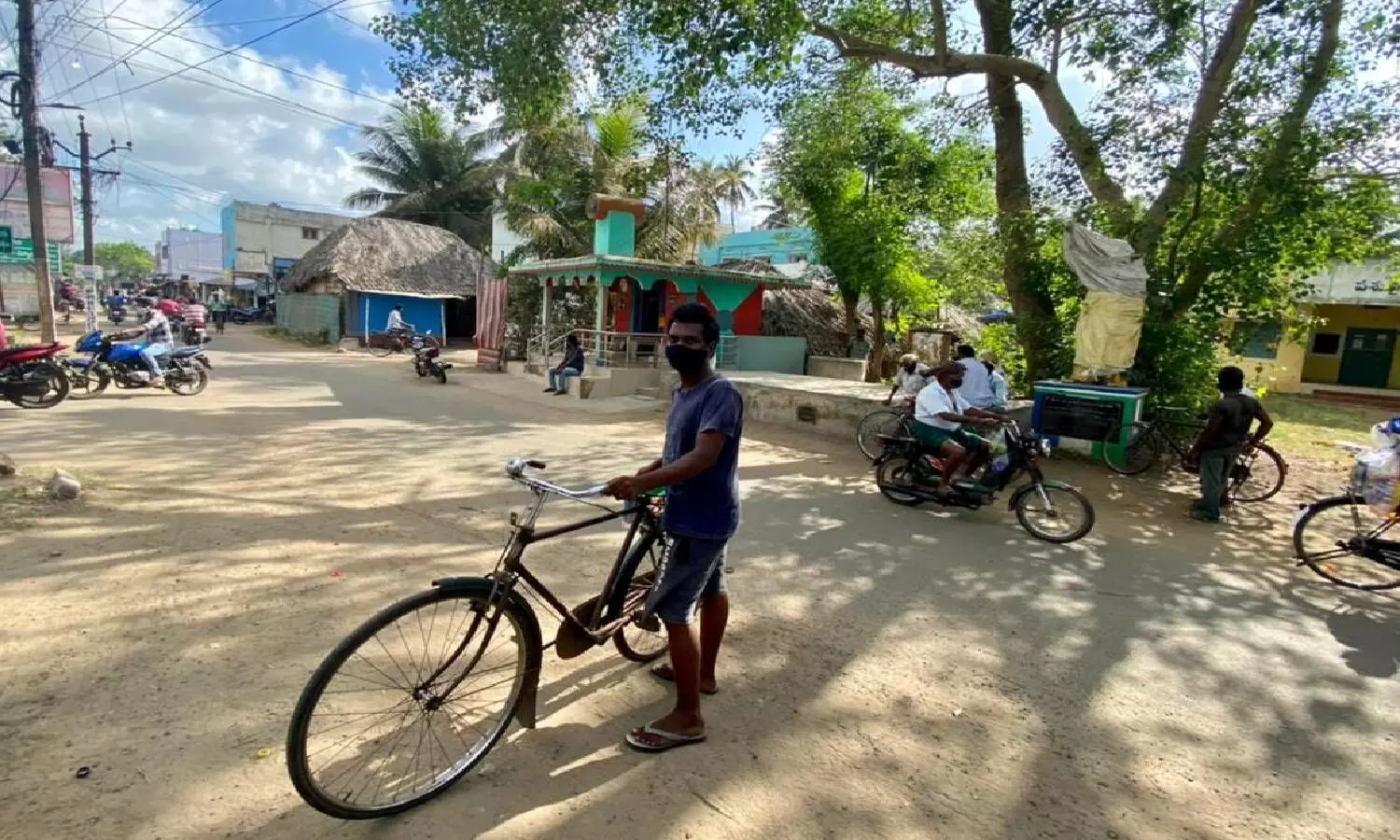COVID-19 spreads to rural Andhra Pradesh; villages report 57% of new cases
In several villages, locals themselves have erected barricades to block the entry for outsiders to prevent transmission.
By Newsmeter Network
Vijayawada: After battering urban centers, COVID 19 is making strong inroads in rural pockets of Andhra Pradesh. Infection and mortality rate has surged multifold in the last few weeks.New cases are being reported from each village on daily basis. Visakhapatnam, Guntur, and Chittoor districts in the state have been the worst hit.
Urban pockets were the predominant contributors to the caseload growth at the beginning of the second wave. Factors such as increased density of population, mobility, and activity level have been generally attributed to the propensity of the in the urban areas.
Medical and Health Department officials said cities and towns reported over 60 percent of the total COVID-19 infections and the rural pockets reported around 40 percent of infections. Things have suddenly changed in May and now over 57 percent of infections are being reported from rural pockets.
From May 1 to May 6, as many as 15,84,945 samples were tested in Andhra Pradesh and 3,33,801 came back positive. During the same period, 1,380 patients succumbed to the virus. East Godavari officials had to set up a medical camp and restrict the entry of outsiders in Gollavilli village in Uppalaguptam Mandal after the village witnessed several deaths and a series of positive cases.
In several villages, locals themselves have erected barricades to block the entry for outsiders to prevent transmission. The villages are also forming committees to check the spread of the disease.
The absence of robust health infrastructure and testing mechanism coupled with lack of awareness are making matters worse in the rural parts of the state. Vizianagaram District Collector M Hari Jawaharlal said that they have observed some youngsters in the rural pockets have tested positive. He said some of the youngsters are not following the precautions properly and also delaying the treatment.
"We have to protect rural areas from the virus. Every officer should ensure that people are screened. All those people suffering from fever in all the villages should be identified," he said.